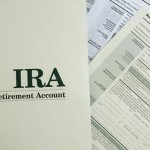Subpart F Income Defined
When a US citizen forms an offshore corporation in a low tax country different from his country of operation, he has a Controlled Foreign Corporation with possible Subpart F income issues. In this article, I’ll review the Subpart F rules and determining factors.
First, let’s talk about a Controlled Foreign Corporation. Subpart F only applies to CFCs.
A CFC is a foreign corporation primarily owned by a US person or persons. A US person is any US citizen, resident or greencard holder. Ownership means stock ownership or voting rights / control. So, a CFC is a foreign corporation where US persons hold more than 50% of the stock or voting rights (ownership or control).
Above I said that Subpart F applies to offshore corporations formed in countries other than your country of operation. This would usually be in a low tax country like Nevis or Belize to worldwide local taxes.
This is because Subpart F is targets income and profits that has little or no economic relation to the CFC’s country of incorporation.
Subpart F income includes insurance income, foreign base company income, international boycott factor income, illegal bribes and income derived from counties on the US blacklist (as sponsors of terrorism).
I’ll assume that you, my esteemed reader, aren’t running guns, bribing public officials nor trading with Iran or North Korea. So, that leaves insurance income and foreign base company income.
Subpart F Insurance income is the income earned from insuring risk outside of your country of incorporation. Unless an exception applies, insurance income earned by a CFC is taxable in the United States in the year earned.
The insurance section of the Sub F rules is meant to prevent multinationals from building large stashes of tax deferred profits offshore through “self insurance schemes.” Exceptions include the mini-captive insurance company and certain licensed foreign insurance providers.
The mini-captive exception allows you, the US small to medium sized business owner, to self-insure against foreseeable risks up to $2.2 million per year as of 2017. That is to say, you and expense and take a deduction for of up to $2.2 million per year in self insurance costs paid to an offshore CFC owned by you or your US corporation.
Subpart F foreign base company income is the broadest category and includes any income earned that has no economic connection to your country of incorporation. There are 5 types of foreign base company income:
- Foreign personal holding company income,
- Sales income,
- Services income,
- Shipping income, and
- Oil-related income.
The foreign personal holding company rules basically turn your offshore corporation into a disregarded entity or partnership when it comes to passive income. In most cases, passive income and capital gains will flow through from your offshore CFC to be taxed in the United States.
For purposes of subpart F and the regulations, foreign personal holding company income consists of the following:
- Dividends, interest, rents, royalties, and annuities;
- Gain from certain real estate transactions (does not apply to real estate professionals earning ordinary income rather than passive income);
- Gain from commodities transactions;
- Foreign currency gains; and
- Income that is equivalent to interest income.
Foreign base company sales income is profits from sales where the CFC is unnecessary in generating the income. For example, a US company sells inventory to a Panama corporation and that Panama corporation sells the inventory to Asia, without making any improvements or adding any value.
In this case, the Panama company is unnecessary and any income attributed to it will flow back to the United States.
However, if the Panama CFC does add significant value to the inventory, then the profit it retains would not be considered foreign base company sales income. In that case, the US company would pay tax on the value it created, the Panama company would retain income based on the FMV of the value it added, and the company in Asia would do the same.
Foreign base company service income is income generated from services earned for work done outside of the CFC’s country of incorporation for or on behalf of a related person. It does not include income derived in connection with the performance of services that are directly related to:
(a) the sale or exchange by the CFC of property manufactured, produced, grown, or extracted by it and which are performed before the time of the sale or exchange; or
(b) an offer or effort to sell or exchange such property. IRC 954(e)(2), Treas. Reg. 1.954-4(d).
(c) nor is service income that falls within the definition of Foreign Base Company Oil Related Income. IRC 954(b)(6).
Finally, foreign base company service income does not include certain services income derived in the active conduct of a banking, financing, securities, or insurance business. IRC 954(e)(2).
I hope this article on Subpart F income has been helpful. For more information on forming an offshore corporation, or devising an international tax plan, please contact me at info@premieroffshore.com or call us at (619) 483-1708.




Leave a Reply
Want to join the discussion?Feel free to contribute!